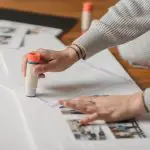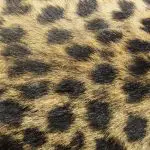Are you curious about the reliability of water-resistant fabric glue? Here's what you need to know.
When it comes to securing fabrics or materials that may encounter moisture, you want to ensure that the bond holds strong. Understanding the factors that affect adhesion strength, practical tips for application, and how to test durability can all contribute to your mastery of using water-resistant fabric glue.
Additionally, comparing different brands can provide valuable insight into their effectiveness. Real-world applications and considerations will further enhance your understanding of this essential adhesive.
Key Takeaways
- Water-resistant fabric glue is designed for outdoor gear and waterproof materials, creating a durable and flexible bond.
- Factors such as excess moisture and improper surface preparation can weaken the adhesive strength of the glue.
- It is important to read the instructions thoroughly, test the glue on a small area, and apply it sparingly to ensure a secure bond.
- Durability testing, including tensile strength and exposure to moisture, heat, and UV radiation, helps evaluate the long-term effectiveness of the glue.
Understanding Water-Resistant Fabric Glue
You'll find that water-resistant fabric glue is designed to withstand moisture and provide a strong bond between fabrics. This type of glue is perfect for outdoor gear, rainwear, and any projects that require waterproof materials. When it comes to bonding techniques, water-resistant fabric glue is formulated to create a durable and flexible bond that can withstand exposure to water, making it a reliable choice for various fabric applications.
Whether you're working with nylon, polyester, or other water-resistant materials, this adhesive is specially designed to maintain its strength and integrity even in wet conditions.
Understanding the properties of water-resistant fabric glue is crucial for ensuring the success of your projects. It's important to follow the manufacturer's instructions for application and drying times to achieve the best results. Additionally, proper surface preparation and application techniques are essential for maximizing the adhesive's bonding capabilities.
Factors Affecting Adhesion Strength
To achieve a strong bond with water-resistant fabric glue, consider the factors that can affect adhesion strength.
The influence of moisture on the bonding process is a crucial factor to consider. Excess moisture can hinder the glue's ability to adhere properly, leading to a weaker bond. It's important to ensure that the fabric and the surrounding environment are dry before applying the glue.
Additionally, proper surface preparation plays a significant role in adhesion strength. The surface should be clean, free from any dust, dirt, or residue that could hinder the glue's ability to form a strong bond. It's recommended to gently clean the surface with a suitable cleaning agent and allow it to dry thoroughly before applying the water-resistant fabric glue.
Tips for Using Water-Resistant Fabric Glue
When using water-resistant fabric glue, ensure that you thoroughly read and follow the manufacturer's instructions to achieve the best results. Proper application is crucial for the effectiveness of the glue. Here are some essential tips to consider when using water-resistant fabric glue:
| Tips for Using Water-Resistant Fabric Glue |
|---|
| 1. Read the instructions thoroughly before application |
| 2. Test the glue on a small, inconspicuous area of the fabric to ensure compatibility |
| 3. Clean and dry the fabric before applying the glue |
| 4. Apply the glue sparingly to avoid excess seepage |
| 5. Use pressure or clamps to ensure a secure bond |
These tips are essential to ensure the proper application and fabric compatibility of water-resistant fabric glue. By following these guidelines, you can maximize the effectiveness of the glue and ensure a strong and durable bond between fabrics.
Testing the Durability of Fabric Bonds
Testing the durability of fabric bonds is essential for assessing the long-term effectiveness of water-resistant fabric glue. Durability testing involves subjecting the bonded fabric to various stressors to evaluate its strength and resilience over time.
One common method is the tensile strength test, which measures the force required to pull the bonded fabric apart. This test helps determine the maximum load the bond can withstand without failing.
Additionally, fabric bond strength can be evaluated through exposure to environmental factors such as moisture, heat, and UV radiation. These tests simulate real-world conditions and provide valuable insights into how the fabric bond holds up under different scenarios.
Moreover, durability testing often includes cyclic fatigue tests, where the bonded fabric undergoes repeated stress cycles to mimic the wear and tear it may experience during use.
Comparing Water-Resistant Glue Brands
You need to compare water-resistant glue brands to ensure you choose the most reliable option for your fabric bonding needs.
When comparing brands, consider the drying time, effectiveness, longevity, and flexibility of the glues.
Drying time is essential, as you want a glue that sets quickly but allows you enough time to position the fabric pieces properly.
Effectiveness is key; you want a glue that forms a strong bond and withstands washing or exposure to water.
Longevity is crucial for ensuring that the fabric bond holds up over time. Additionally, flexibility is important to maintain the fabric's drape and movement.
Look for glues that are specifically designed for water resistance and fabric bonding.
Read product reviews and consider the experiences of other users to gauge the performance of different brands.
Real-World Applications and Considerations
For real-world applications and considerations, you'll need to rely on the durability and performance of water-resistant fabric glue in various situations. When using water-resistant fabric glue in practical applications, there are several key considerations to keep in mind:
- Outdoor Use: Water-resistant fabric glue is often used for outdoor gear such as tents, tarps, and outdoor clothing. It's crucial to ensure that the glue can withstand exposure to the elements, including rain, snow, and UV radiation. Consider the climate conditions in which the fabric will be used and select a glue that's specifically designed for outdoor applications.
- Washability: In real-world applications, fabric items may need to be washed, such as outdoor cushions, rain gear, or swimwear. It's important to choose a water-resistant fabric glue that can maintain its adhesive properties even after multiple wash cycles to ensure longevity and durability.
- Flexibility and Stretch: Certain fabric items, like stretchy outdoor clothing or flexible gear, require a water-resistant fabric glue that can maintain adhesion without becoming brittle or cracking under repeated stretching or movement. Consider the flexibility and stretch requirements of the fabric when selecting a suitable glue for your real-world applications.
Frequently Asked Questions
Can Water-Resistant Fabric Glue Be Used on All Types of Fabric, Including Delicate and Specialty Fabrics?
You can use water-resistant fabric glue on delicate fabrics, but it's crucial to be careful with application techniques. When dealing with specialty fabrics, there are potential risks to consider, so always test in a small area first.
How Does Water-Resistant Fabric Glue Hold up Against Extreme Temperatures and Weather Conditions?
In durability testing, water-resistant fabric glue shows strong adhesive performance against extreme conditions. It's designed to resist temperature changes and weather elements, making it a reliable choice for various fabric types, including delicate and specialty fabrics.
Are There Any Special Considerations or Precautions to Take When Using Water-Resistant Fabric Glue on Outdoor or Marine Applications?
When using water-resistant fabric glue for outdoor or marine applications, it's important to take precautions. Proper application techniques, like ensuring the surfaces are clean and dry, can help ensure a strong bond that holds up well.
Can Water-Resistant Fabric Glue Be Used to Repair or Bond Fabric to Non-Fabric Materials, Such as Metal or Plastic?
Yes, water-resistant fabric glue can effectively bond fabric to non-fabric materials like metal or plastic. However, consider the impact of extreme temperatures and delicacy of fabrics. Ensure proper application for durable results.
What Are the Best Methods for Cleaning and Maintaining Fabric Bonds Made With Water-Resistant Fabric Glue?
To maintain fabric bonds made with water-resistant fabric glue, use gentle cleaning techniques. Avoid harsh chemicals or abrasive scrubbing, which can compromise long term durability. Regularly spot clean and air dry to preserve the strength of the bond.
- The History and Evolution of Chamois Fabric - June 22, 2025
- Chamois Fabric on Wikipedia: What You Need to Know - June 22, 2025
- How to Pronounce Chamois Fabric Correctly - June 22, 2025







